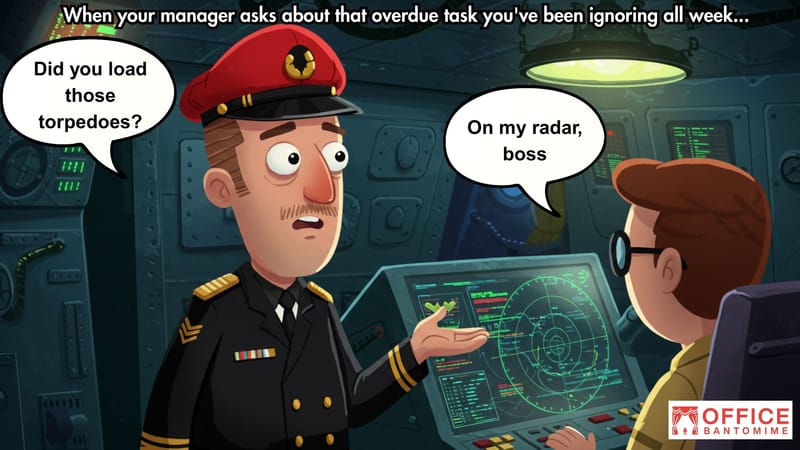Procrastination: The Enemy of Efficiency and Progress
Procrastinators are the tomorrow people.
How Procrastinators Say Yes to Deadlines but No to Work
It's a bird, it's a plane, it's a procrastinator! When a deadline comes calling, they disappear faster than a magician's rabbit. You can call, email, send smoke signals, and even hire a carrier pigeon - but you won't hear a peep from them until the last minute.
Procrastinators: Taking Mini-Vacations After Missing Deadlines
Finally, after weeks of waiting and nagging, the work is submitted. But instead of getting down to work on the next project, procrastinators jet off on mini-vacations to "recover from the stress." We wonder, who's more stressed out - them or us?
Procrastination: The Art of Doubting Yourself
Perfectionism is a common trait among procrastinators, but it's not the only one. Many procrastinators suffer from a lack of self-confidence and doubt their ability to complete the task at hand. So, they put it off until the last possible moment, hoping that somehow, someway, it will magically get done.
Impulsive Procrastinators: Living in the Moment
Impulsive people value living in the moment and don't see the point in deadlines. They'd rather enjoy life and take things as they come. Unfortunately, this attitude can cause chaos in the workplace, and the consequences can be dire.
Procrastination: The Costly Business of Doing Nothing
For businesses, procrastination is costly. Managers spend countless hours counseling tardy employees, covering postponed work, and managing conflicts that arise when a team is waiting for a procrastinator to complete their part of the project. The cost is hard to measure, but one thing is certain - it's never cheap.
Procrastination: Missed Opportunities and Extra Work
Procrastination costs are hard to measure, but they're always there. When a procrastinator is on a project, it's almost a guarantee that it will either be late or that others will have to do extra work to get it done on time. So, the next time you're tempted to put things off until the last minute, think twice - or better yet, think ahead.
Strategies to deal help deal with the procrastinator
Here are some strategies you can use to deal with a procrastinator in your workplace:
- Set clear expectations and deadlines: Make sure the procrastinator understands exactly what is expected of them and when it is due.
- Break tasks into smaller steps: This can help the procrastinator feel more manageable and make progress more easily.
- Encourage accountability: Consider setting up a system where the procrastinator is accountable to someone else for completing their tasks on time.
- Help the procrastinator identify the root cause of their procrastination: It could be that they are overwhelmed, don't know how to complete the task, or are struggling with perfectionism. Once the root cause is identified, you can work together to find a solution.
- Provide resources and support: Offer the procrastinator any resources or support they need to complete their tasks, such as training or additional help.
- Set aside dedicated work time: Encourage the procrastinator to set aside specific blocks of time for focused work, and try to minimize distractions during these times.
- Be patient and understanding: Remember that overcoming procrastination can be a difficult process and it may take time to see improvement. Be patient and offer support and encouragement along the way.
- Offer incentives for meeting deadlines: Consider offering rewards or incentives for completing tasks on time. This can help motivate the procrastinator to take action.
- Encourage time management skills: Help the procrastinator develop time management skills, such as creating a schedule or using a task management app.
- Encourage open communication: Encourage the procrastinator to communicate openly with you and their team members about any challenges or roadblocks they are facing. This can help identify any underlying issues and find ways to overcome them.
- Be a positive role model: Set a good example by completing your own tasks on time and being organized and efficient in your work. This can help inspire the procrastinator to do the same.
- Seek professional help: If the procrastination is severe and is causing significant problems in the workplace, it may be helpful for the procrastinator to seek help from a mental health professional. They can work with the individual to identify and address any underlying issues that may be contributing to the procrastination.






